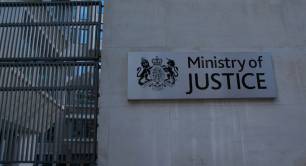Don't freeze us out! UK government urged to review £130m bidding process
The UK government must change the bidding process for its Work and Health Programme so that charities and social enterprises are not frozen out.
This is the message from 13 leading figures in the social enterprise sector who have written an open letter to the government today.
The letter – signed by Big Society Capital chief executive Cliff Prior, Charity Bank chief executive Patrick Crawford and Nick Temple of Social Enterprise UK, among others – warns that although charities and social enterprises have considerable skills in helping vulnerable people in the UK, they face ‘massive barriers’ when it comes to bidding for and winning contracts.
The Department for Work and Pensions (DWP) will launch a new Work and Health Programme for jobseekers in October 2017. It will focus on helping those unemployed for over two years and those with disabilities and health conditions back into work. The procurement process began this summer and contracts will be awarded in April 2017.
The DWP promised that the bidding process should be open to all types of organisation.
Social investor Big Society Capital commissioned the independent think tank Reform to carry out research into the Work and Health Programme’s procedures, based on previous procurements.
The research, The Work and Health Programme: levelling the playing field, published on 13 July, argues that the government ‘will fail to create a level playing field’ in the competition for the Work and Health programme.
In the report’s foreword, Labour MP Frank Field, chair of the Work and Pensions Committee, writes: ‘Despite successive welfare-to-work programmes aimed at helping this group, millions have been left parked on benefits in a system that conflates disability with inability to work.
‘The replacement of the Work Programme offers an opportunity to change this – to ensure that welfare-to-work services are much more tailored to the often complex needs of those with a health condition or disability. This means making sure that specialist organisations – with deep local knowledge and expertise in different conditions – are involved in delivering those services. The new Work and Health Programme must be commissioned with this is mind.’
AN OPEN LETTER ON THE WORK AND HEALTH PROGRAMME
At a time of great political and financial uncertainty, let’s ensure the best outcomes for jobseekers with health conditions and disabilities.
Public services are undergoing a system-wide reform with increasing demand for services against a backdrop of reduced Government funding. So, we need new ideas and different ways of delivering services that meet the needs of the most vulnerable people in the UK – the very people that will be hardest hit by current political and financial volatility.
Charities and social enterprises have considerable skills in this area yet they face massive barriers when it comes to bidding for, and winning, contracts – only one of 21 contracts in the Government’s ground-breaking Transforming Rehabilitation Programme is being delivered by a social sector led consortium.
We need public service procurement to be competitive if it is to deliver the best outcomes for those in need and achieve value for money. As the Government launches the Work and Health Programme for jobseekers with health conditions and disabilities – which at £130 million is smaller than the current Work Programme – we urge it to adopt these three key recommendations based on today’s research by Reform:
- Guarantee minimum-referral volumes. This will allow a broader range of providers to bid with confidence that the scope is realistic and sustainable.
- Set lower thresholds for parent-company guarantees at no more than 10 per cent of annual contract value. This would reduce barriers to market entry and allow smaller and specialist organisations to bid.
- Place a heavier emphasis on quality of bids. This would help prevent a race to the bottom on cost, where only providers who discount price without improving quality are able to secure contracts.
By learning from previous experience and making key changes to the process before it gathers pace, the Department of Work and Pensions can ensure that the expertise and innovation of charities and social enterprises are not frozen out of the bidding process.
Cliff Prior, Chief Executive, Big Society Capital
Chris Wright, Chief Executive, Catch22
Patrick Crawford CB, Chief Executive, Charity Bank
Andrew O'Brien, Head of Policy and Engagement, Charity Finance Group (CFG)
Kirsty McHugh, Chief Executive, Employment Related Services Association (ERSA)
Graham Duxbury, Chief Executive, Groundwork
Tony Armstrong, Chief Executive, Locality
Patrick Murray, Head of Policy and External Affairs, New Philanthropy Capital (NPC)
Dominic Llewellyn, Co-Chief Executive, Numbers for Good
Nick Temple, Deputy Chief Executive, Social Enterprise UK
Jonathan Flory, Director, Social Finance
Jonathan Jenkins, Chief Executive, Social Investment Business
Mark Norbury, Chief Executive, UnLtd


